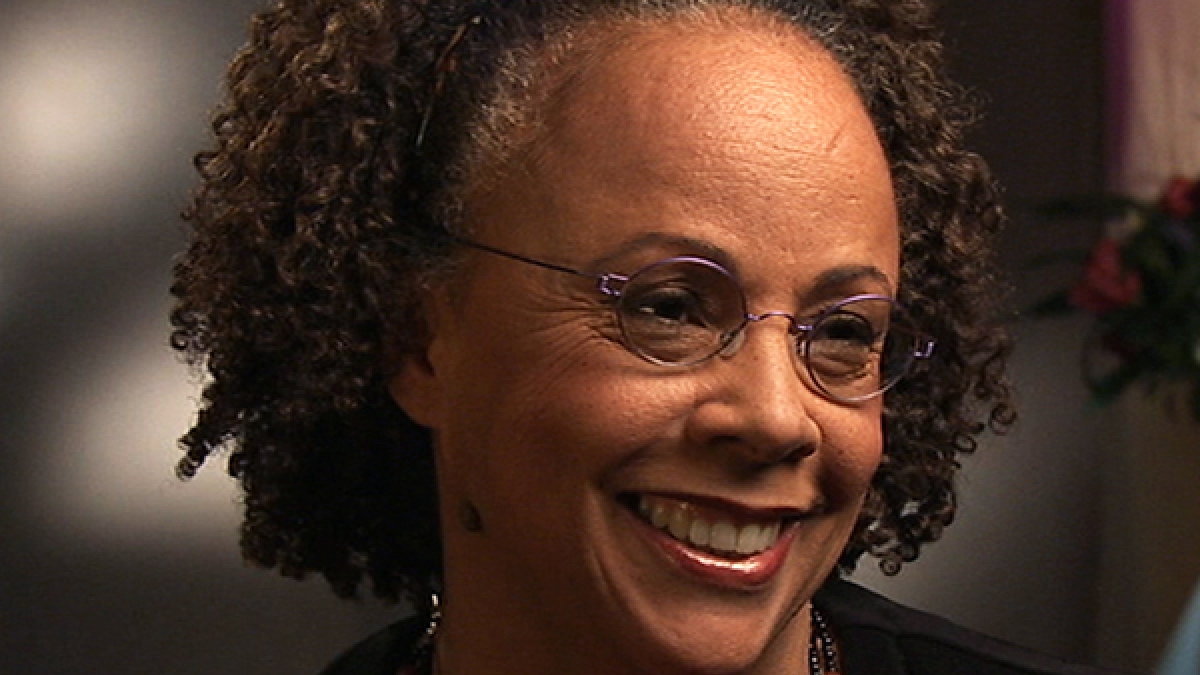ASU professor's new book offers taste of bayou magic, culture

Award-winning author Jewell Parker Rhodes was born in Steel City U.S.A., but her head, heart and literary works can often be found the Deep South.
Her latest, “Bayou Magic” (Little, Brown and Company, $17), is a middle school reader novel about Maddy, a young African-American girl in Louisiana who finds out that she has inherited her family’s magical legacy. And when an oil leak threatens to ruin the beautiful bayou, she knows she may be the only one who can help.
Rhodes is founding director of the Virginia G. Piper Center for Creative Writing and the Piper Endowed Chair at Arizona State University. She is also a professor in the Department of English in the College of Liberal Arts and Sciences.
The author of a dozen books, Rhodes spoke exclusively to ASU News about “Bayou Magic” and her Southern roots, and she offered a sneak peak at her next novel, which was influenced by the 9/11 terrorist attacks.
Q: “Bayou Magic” takes a very different approach to mermaid lore than the Disney tale so many of us are familiar with. What was the inspiration for this story?
A: I’ve long known about different mermaid lore. I was thrilled when both UCLA’s Fowler Museum and the Smithsonian’s National Museum of African Art featured an exhibit of Mami Wata, “Mother Water.” I think it’s amazing that African mermaids swam beside slave ships and remained in America to comfort the captured and to remind them of their homeland. Literature teaches culture. I want girls of color to know there are heroic mermaids that mirror them. I want all girls to know there are diverse, global mermaid tales that depart from the Western tale of a mermaid transforming herself to marry a human.
Q: You were born in Pittsburgh, but “Bayou Magic” and many of your previous novels take place in Louisiana. What is it about the Deep South that moves you?
A: My grandmother raised me, and she had deep Southern roots. She believed in holistic healing, and she taught me to honor the past, my ancestors and nature. Grandmother died when I was 19 just as I was deciding to become a writer. Whenever I visit Louisiana, I feel her spirit – her good-heartedness and love. I’m also enthralled by the cultural stew – the delicious food, music and people. History feels alive in Louisiana; the atmosphere encourages dreams, magic and creativity.
Q: Why are magic and myth such an important part of children’s literature?
A: The world is already magical for children. Seeing the moon, a family of rabbits, currents in the water are spectacular for a child. However, I do think children are drawn to stories in which characters perform magic. Magic can help children overcome their limitations and like Maddy save the day. Combine the mythic hero’s journey with magic and young readers feel empowered.
Q: What’s the best part of writing for a younger audience?
A: Hugs and more hugs! Visiting schools is such a life-affirming delight. But I didn’t expect cards, letters and drawings from students. It’s very precious when a child reaches out. I keep a box filled with cards and letters. I imagine when I’m very, very old, they will never fail to lift my spirits.
Q: What do you hope your young readers learn from this book?
A: Nature needs to be cherished, and the health of animals, humans and our planet need to be balanced with energy needs. Young people today will be the stewards of the future. I do believe legends of mermaids who valued waters and befriended humanity will add an emotional resonance to sustainability issues for children. Which is why through our Piper Writers Studio and our Desert Nights, Rising Stars – we also support youth writing and workshops. Your Novel Year is a Piper initiative, and we have a second cohort in progress. We teach Young Adult and Middle Grade novel writing. These are genres not taught in traditional MFA programs.
Q: Are you working on any new projects?
A: I’m completing “Towers Falling,” which has a publication date for the summer of 2016. It’s about Dèjà, a homeless girl who discovers how her life has been impacted by the 9/11 terrorist attacks. I’m also doing research for two other historical novels. I don’t know if I’ll write one or both or none. As always my writing follows my heart. I’m open to voices, characters that appear like ghosts when I’m doing the dishes or dreaming.